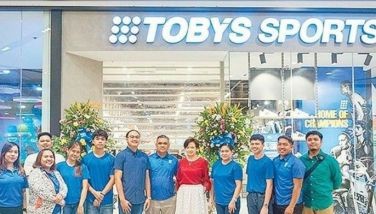Competitiveness

Last week, Nikkei Asian Review carried a report about Nestle warning they may close its coffee manufacturing plant in Cagayan de Oro and move to some other Asean country. Nestle complained manufacturing its three-in-one coffee product here has become uncompetitive.
Nikkei reported that a senior Nestle Philippines executive expressed hope lawmakers “address the disadvantage of local manufacturers which use local agricultural products against those importing finished goods.”
Ernesto Mascenon, senior vice president and head of corporate affairs at Nestle Philippines was further quoted saying “Otherwise the option for us is we will close down our manufacturing here and just move to Indonesia, Vietnam, Malaysia and import.”
By weekend, Nestle came out with a press statement denying they are thinking of moving out of the country. They have been here 107 years, the statement said, and they plan to be here a hundred years more. “Coffee under our Nescafe brand remains to be a core pillar for us, and we are committed to support the local coffee industry and our coffee farmers to grow,” the Nestle statement said.
I suspect they got a strong reaction from government (or fear they will get one) which made the short statement necessary. But I believe Mascenon couldn’t have spoken out of turn.
I have worked in Nestle’s advertising and public relations agency way back 30 or so years ago and I am familiar with how they operate. Everything is vetted not just here but in Vevey before public release. I believe they wanted to send a strong message.
Indeed, Nestle is hurting, losing significant market share in the coffee three-in-one category to Kopiko, an Indonesian brand. The Indonesians have quietly penetrated our consumer market to include detergents and other consumer products.
The Indonesian brands are winning market share because our market is now very price conscious. Nestle is still positioned as a premium brand. But coffee, detergents, soaps, toothpaste have become mere commodities in our mass market today.
I can sympathize with Nestle’s pain. They are sourcing most of their coffee locally. They are also helping our farmers grow their coffee better and buying their produce at world market price. But they are losing to a totally imported product because of price.
Nestle, like other manufacturers here, are finding it difficult to produce their products at a price that can compete with imports from Indonesia, among other Asean countries.
Colgate found that out years ago and moved their toothpaste manufacturing to Thailand. Other western brands are manufacturing in Indonesia. Moving out of here is a competitive issue.
First of all, the cost of manufacturing here is higher. Electricity here is more expensive. Cost of labor is also higher and aggravated by too many public holidays and uncertainty in labor policies.
The cost of doing business is also higher with manufacturers having to deal with corruption and red tape in the national and local government levels. Horrible infrastructure inflates costs of transporting raw materials and finished products.
Manufacturing has struggled to take its place as one of the legs supporting our economy. Our economy is largely supported only by the two legs of OFW remittances and BPOs. Only heavily import dependent electronics had been able to keep its place as our principal export. Garments have long moved to other countries in the region.
With Vietnam now a top coffee producer and exporter, it would be cheaper and more convenient for Nestle to relocate there. With Asean’s Free Trade Area, manufacturing in any Asean country allows free entry to our market anyway.
No one can claim Nestle didn’t try hard enough. Nestle had been through some really rough times trying to prove they can manufacture here. Some labor disputes in the past had been violent and deadly but Nestle stayed and have been producing some of its best products here.
But the Nikkei report was wrong about Nestle citing TRAIN 1 and high sugar prices here as one reason why their three-in-one coffee is price uncompetitive. According to a DOF official who responded to that question in our Viber group, sugar used in that product is not covered by the sugar tax.
Most likely, it is the powdered fruit juices of Nestle that got hit hard by the sugar tax. But even without the sugar tax, the cost of sugar in this country is higher than elsewhere in Asean. That means Kopiko’s sugar cost is lower than Nestle’s.
This brings up a long festering problem of government policies that keep our sugar prices high. As in rice, the market should be opened up and at the very least, manufacturers who need sugar should be allowed to import.
Then, there is the uncertainty posed by TRAIN 2. I support the push to rationalize incentives we give to investors. There are too many government agencies giving incentives and in some cases the tax incentives have no expiration date.
Investors however say that the incentives are there to compensate them for the higher cost of doing business here. They would have gone to Vietnam or Thailand or Indonesia otherwise.
Maybe a lower corporate income tax, also provided in TRAIN 2, would compensate for lost incentives. A green lane for investors when transacting with any government agency would also help.
Investing on technology and educating our young people to make them thrive in the Fourth Industrial Revolution should be a priority. We are already behind Thailand and Vietnam in this area and that’s a disincentive to investors.
In other words, the senators scrutinizing TRAIN 2 will have to go into the innards of what would make us competitive even before considering tax reform. There are likely structural problems that must be cleared.
We may be able to keep Nestle manufacturing coffee products here for now. But the competitiveness issue their threat to leave inspired deserves serious consideration.
Boo Chanco’s e-mail address is bchanco@gmail.com. Follow him on Twitter @boochanco
- Latest
- Trending























